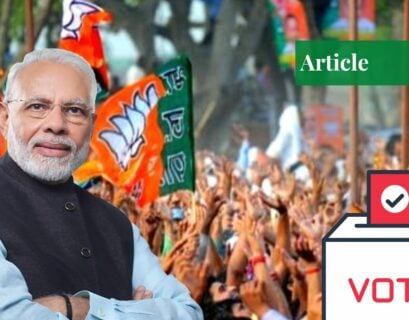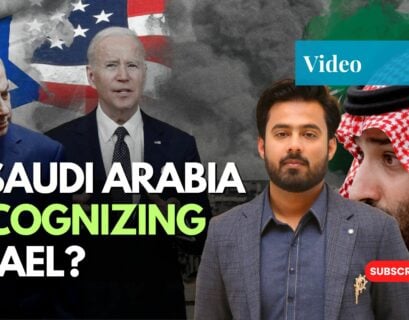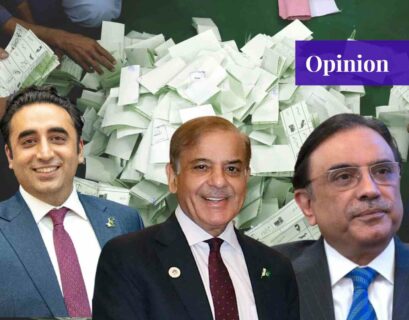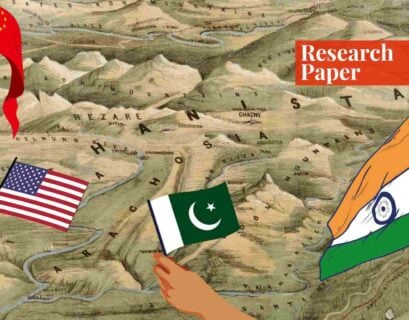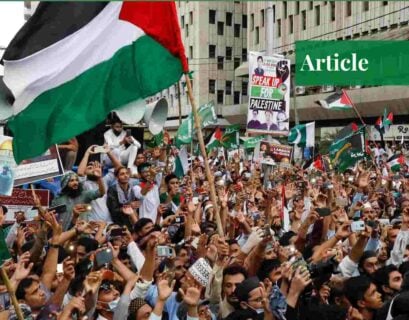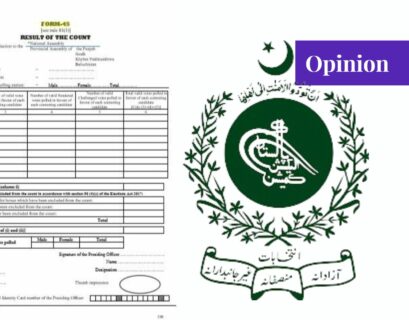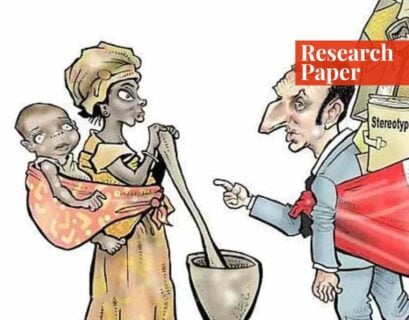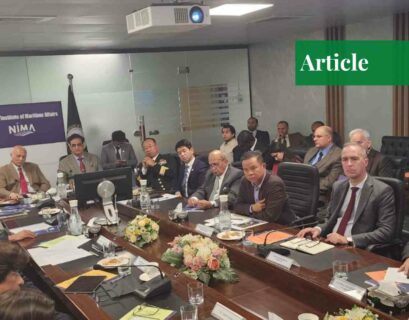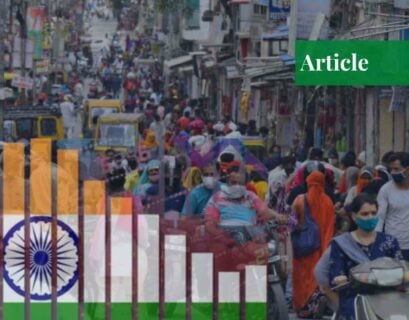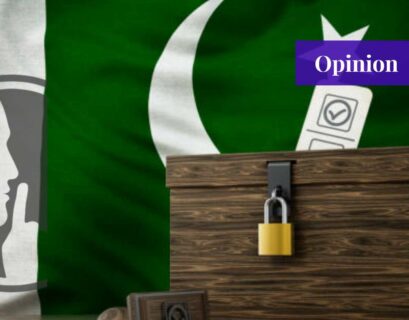Analyzing the Iranian and Israeli Counter-Strikes
April has been eventful for security analysts and geopolitical experts.
The long and bitter rivalry between Iran and Israel was fully exhibited by the repeated strikes and counter-strikes between the two.
There is something oddly interesting about these retaliatory attacks, and Abdullah Nisar shares his take on the attacks between 1st and 19th April and how things will play out.
Will Iran make its move against Israel for the Isfahan attacks?
Maskirovka, A Russian Military Strategy—Is the Element of Surprise Still Relevant?
Maskirovka has always been an elusive term, often times used crudely at any Russian perceived act, but there is more depth, complexity, and meaning to maskirovka than some immoral Russian trickery.
It is a military art, deemed reliable since its first use against the Mongols. It is a way of war, and along with it comes the element of surprise, an under-rated part of maskirovka.
Alishbah Syed explores the concept of maskirovka and the continuing relevance of surprise in it.
Democracy in Peril: India’s 2024 Lok Sabha Elections & Modi’s Assured Return
The 18th Lok Sabha elections in India are expected to be won by the incumbent Bhartiya Janata Party (BJP) and Prime Minister Narendra Modi.
However, concerns have been raised about the BJP’s policies of authoritarianism, which threaten democracy, secularism, and the protection of minorities within India.
Pareesa Memon highlights BJP’s catastrophic history and its increasing marginalization of minorities. She expresses concern that with a third term, the BJP will further reduce space for dissent, debate, legislative scrutiny, and oversight.
The Iran-Israel War: A False Front of Power
The Iran-Israel war has been making headlines in April, and rightly so—the fear of a WWIII happening has the world glued to screens now, more than ever before.
Lt Gen (R) Tariq Khan has a different view of these attacks between Iran and Israel. He deems them only to be an act; a play that appears to show both countries as protagonists.
[Video] Is Saudi Arabia Recognizing Israel?
This video examines a potential historic shift in the Middle East—Saudi Arabia’s potential recognition of Israel. Driven by American efforts for regional stability, the normalization of Saudi-Israel relations will have both benefits and consequences for the region, particularly for Palestine.
Disappointment and Allegations: Assessing the 2024 Elections in Pakistan
The 2024 elections in Pakistan were marred by disappointment and frustration, reflecting the country’s fractured democracy. The newly elected coalition government has been followed by allegations of electoral rigging, tarnishing Pakistan’s legitimacy internationally. In the midst of this, Aneeza Atif presents her view on what the future holds for Pakistan.
The New Great Game: A Pakistani Perspective
Lt Gen Tariq Khan provides an in-depth account of the historical rivalry known as the “Great Game” that took place between the British and Russian empires in the subcontinent during the 19th century.
In his paper, he explains that the withdrawal of the US from Afghanistan created a power vacuum, which set the stage for a “New Great Game” in the South Asian region.
This region is of immense importance due to its geo-strategic location which is central to China, Central Asian republics, Iran, and Pakistan.
Pakistan’s Diplomatic Tapestry: Unraveling the Threads of Foreign Policy in Support of Palestine
Mishayam Jan Ayub explores Pakistan’s enduring support for Palestine, tracing its diplomatic positions and public sentiments. She highlights Pakistan’s unwavering backing for Palestine in the country’s foreign policy, one rooted in historical and cultural ties as well as geopolitical considerations.
Manipulation of Form 47 by the Election Commission in the 2024 Elections
Form 47 is an important document that provides an early overview of election results.
After the 2024 general elections, citizens across the state waited with bated breath for the announcements. However, instead of releasing official statements as soon as possible, the ECP removed Form 47 and its provisional results from its website servers.
This delay in disclosing election results raised doubts about the integrity of the ECP. The flames were further fanned by PTI and PML-N candidates.
The blatant manipulation of Form 47 is cause for concern. Such exploitation erodes people’s trust in their state machinery.
Maidah Tariq questions whether Pakistan’s democratic process can ever be fully transparent, or will it remain entwined with the will of the elites?
Much Ado About Elections
Multiple events unfolded following the 2024 general elections, but one that took centre stage was the Rawalpindi Commissioner’s declaration of his involvement in the rigging.
While much of the commotion eventually died down, not many know how this event wrapped up. Like many Shakespearean plays, it’s tragic.
Honestly, it’s disappointing to see our representatives sully the sanctity of our country’s institutions.
How Contemporary International Public Policy is Shaped by the Legacies of Colonialism
The aftermath of colonialism is evident in the contemporary political landscape which shapes international public policy and helps in understanding conflicts in the world.
In this research paper, Tahoora Kamran uncovers the legacies of colonialism through three cases—the French colonial pact; Belgian rule in Rwanda; and neocolonial governance through the IMF and the World Bank—all of which ultimately indicate the traces of colonialism and showcase the importance of using a postcolonial lens.
NIMA’s Hybrid Seminar on the Indian & Pacific Oceans
Today, the National Institute of Maritime Affairs (NIMA) in collaboration with the Royal Malaysian Navy – Sea Power Centre (RMN – SPC), Pakistan Embassy in France, Centre for International Studies (CeSI) in Italy, and the Institute of Regional Studies held an international hybrid seminar on the regional and international significance of the Indian and Pacific Oceans at the NIMA Head office in Islamabad.
The Indian Economic Model: A Story of Progress & Paradox
Jana Awez provides a critical analysis of India’s economic growth, revealing the harsh realities that exist beneath the surface of its impressive economic achievements. Despite economic gains, citizens grapple with debt, inflation, unemployment, and poor infrastructure. India’s dream of becoming an economic superpower clashes with existing social issues.
The Anglo-Soviet Invasion of Iran
The Anglo-Soviet invasion of Iran officially began on 25th August 1941 and concluded on 31st August 1941, a day after the Iranian government had agreed to surrender and establish a ceasefire.
However, the invasion was more than a mere military operation; it assisted in setting the stage for Iran’s role in global politics along with shifting the perspective of the Iranian government and its populace concerning the West.
Rawalpindi Commissioner Admits To Rigging Elections 2024 | Liaqat Ali Chattha at Press Conference
In this video, we discuss the shocking admission of election fraud by Rawalpindi Commissioner Liaqat Ali Chattha and the subsequent denial by Chief Justice Qazi Faez Isa and the Election Commission Pakistan (ECP).
Voices Unheard in Pakistan’s General Elections: The Paradox of Gilgit Baltistan’s Political Rights
Wazir Zafar Hassan laments the political status of Gilgit Baltistan (GB), especially since the residents of the GB area do not have the right to vote in the general elections of Pakistan.
He raises his concerns in the hopes that he and the rest of the people of GB will be able to secure political representation in the National Assembly.
Rawalpindi Commissioner Admits To Rigging Elections
Hafsa Ammar highlights events that took place outside Rawalpindi Cricket Stadium on 17th February. Rawalpindi Commissioner Liaqat Ali Chattha held a press conference where he admitted to playing a part in rigging the general elections and manipulating the final results.
Chattha confessed to fabricating wins for 13 seats and toppling leads of 80,000 votes. He further told the reporters that Chief Election Commissioner Sikandar Sultan Raja and Chief Justice of Pakistan Qazi Faez Isa were also involved in the electoral misconduct.
Many think this was a bold attempt at gaining political fame due to his upcoming retirement, but if so, why did he immediately surrender to the Rawalpindi Police afterward?


